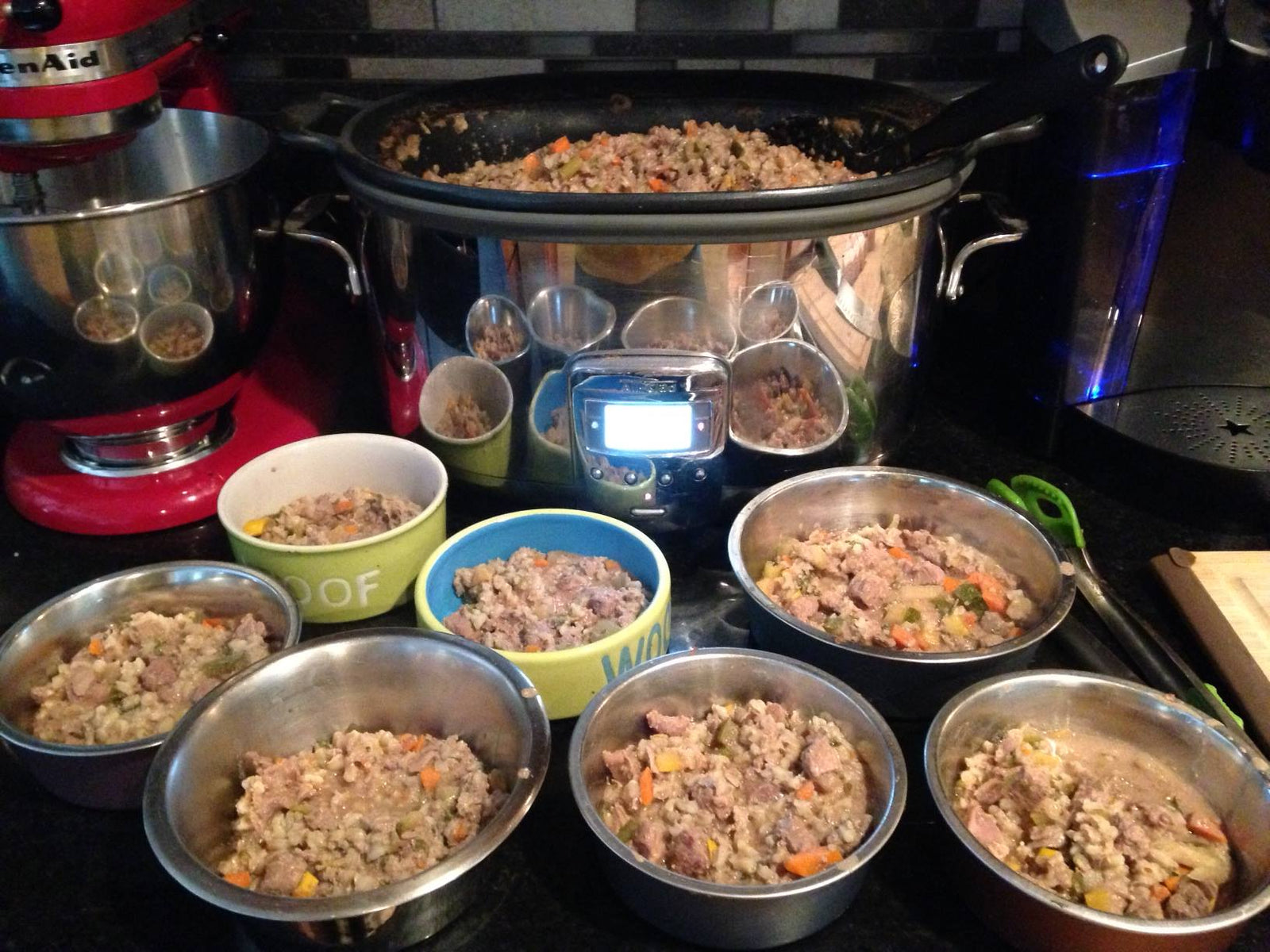The first big cold snap of the year is making its way across the U.S. and today it found its way to my backyard. The dogs and cats are nestled in beds, some wearing sweaters, and the miniature horses are tucked in their stall happily munching a mound of hay. I'm not sure if the cold is here to stay, but colder weather means it's time for a change in diet for all the animals.
Most people are not aware that diet should change with the season, but if you think about the way you eat, you might notice that you do eat differently in different seasons. In the summer we tend to eat cold salads, melons and fruits, and ice cream. But in winter, those melons and cold salads don't seem quite as appetizing as a nice warm bowl of stew with a loaf of homemade bread. We eat a lot more root vegetables and seasonal fare.
Everything we eat imparts energy to our body. Some foods are cooling, while others are warming. During the colder months of the year, I generally feed my animals proteins that are energetically warmer. That means they will be eating more chicken and beef, and less rabbit and duck, particularly my old timers with little body fat for insulation. Our 15-year-old cocker spaniel, Freckles, wears sweaters all year round because she is always cold. In the winter she wears very thick sweaters. She also leaks urine, which worsens if she is fed an energetically cold diet. She does well with chicken and beef, but leaks more urine when fed rabbit or turkey.
I feed my animals more warm stews in the winter; not only do I use "warming" proteins, but I feed the food at a slightly warmer temperature. Even the horses enjoy a nice warm bran mash with apples and peppermint.
If you have a pet that pants a lot, drinks a lot, or suffers from dry skin, you may not want to switch to warming proteins, even in cold weather. Some pets are "Yin deficient", meaning they are too hot and lack moisture (commonly seen with diabetes and Cushing's disease). These pets actually suffer in the winter because the home is heated and the air is dry. Be sure to continue supplying high moisture, cooling diets for these kids.
Here is a sample recipe I might use for a winter stew:
- 1 whole chicken cut into pieces (about 5 pounds)
- 4 ounces chicken liver
- 4 ounces chicken heart
- 4 ounces chicken gizzard
- 12 ounces sweet potato
- 6 ounces kale
- 6 ounces broccoli
- 4 ounces Shiitake mushrooms
- 4 carrots
- 2 ounces grated ginger
Cut up all ingredients. Place in crock pot and cover with water. Cook on low for 8 hours. Allow to cool. Remove bones and discard. Feed four ounces per ten pounds body weight daily (may need a little more for active dogs). Refrigerate up to 4 days, freeze extra portions for use later. Add a mineral supplement and omega 3 at the time of feeding. Watch it disappear! Dogs with long ears may need a snood to keep them clean.
Disclaimer: This content is for informational purposes only and is not meant to diagnose, treat, or replace consulting a primary veterinarian for individualized care.

